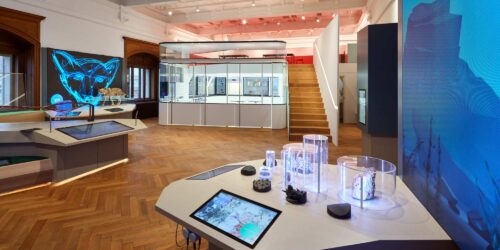
Projects
2021
-
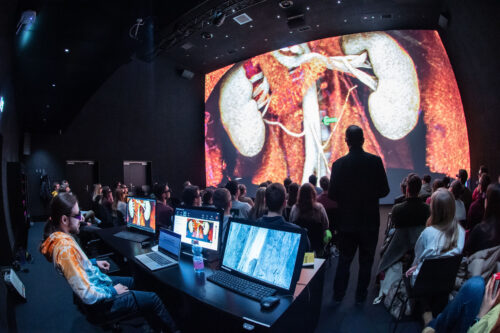
JKU medSPACE
Pioneering Venue for Anatomy Lectures
The JKU medSPACE is a completely new, worldwide unique venue for teaching anatomy, located at the Johannes Kepler University in Linz. Developed and implemented by the Ars Electronica Futurelab, the JKU medSPACE shows anatomy like never before, in quadruple stereoscopic 3D 8K projection at 14×7 meters: Lecturers and students dive into larger than life, photorealistic…
-

Virtual Crib
Historic Nativity Scene in Virtual Reality
More than a hundred years after its first exhibition, the nativity scene of the New Cathedral (Mariendom) in Linz was carefully restored. A team from the Ars Electronica Futurelab then scanned the figurines and landscapes using photogrammetry to create an audiovisual VR experience in stereoscopic 3D with a 360-degree perspective.
-
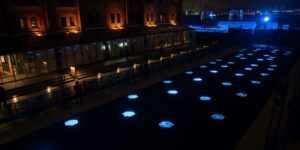
Stream of Hope
Large-Scale Fluxel Performance in Japan
Ars Electronica Futurelab’s Fluxels, a scalable swarm of ground robots equipped with hexagonal LED displays, brought about a new language of visual expression. Stream of Hope in Osaka and Yokohama showcased their versatility at large-scale events.
-
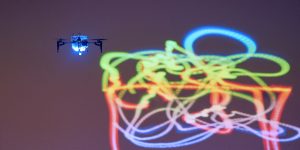
Space Ink
Three-Dimensional Drawings With Drones
What if we can draw in any space with a pen? This question is at the heart of Space Ink, where tablets and drones are brought together to create large-scale works in three-dimensional space using light and color.
-

Schaunberger Grabmal
Cultural Heritage in High-Resolution 3D
To carefully translate one of the Schaunberger Grabmal (Schaunberger tombs) from the Collegiate Church in Wilhering into a virtual object, the contactless process of photogrammetry was employed. This turned the tomb into an immersive 3D cultural experience in Deep Space 8K.
-
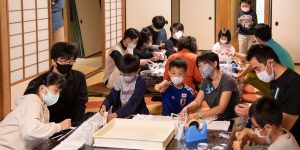
OPEN CITY
Matsudo International Science Art Festival 2021
In 2021, the International Science Art Festival in Matsudo was dedicated to the theme “OPEN CITY – Inspirational City.” The festival aimed to create an ecosystem where people can connect and inspire each other to take on new challenges.
-
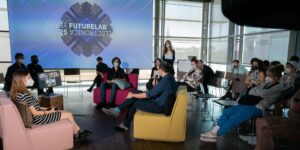
Actions for Deep Issues
Collective Dialogue on Global Challenges
Celebrating its 25th anniversary, the Ars Electronica Futurelab curated a special Futurelab Day at the Ars Electronica Festival 2021. The starting point was a collective dialogue on “Actions for Deep Issues” – in other words, how we can take action in the face of multiple global challenges.
-

AI Ink
AI Composition with Humans and Noise
Noise is an important element in the creativity of artificial intelligence. To understand the relationship between noise and the “soul” in a machine, we used temperature and human interaction as noise in the AI Ink project while composing music with artificial intelligence. After all, temperature is also associated to emotions in the human body.
-
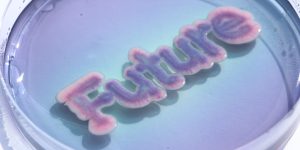
Bio Ink
Can Ink Be Alive?
In Bio Ink, the Futurelab brought together biotechnology and digital pen tablet technology to create living ink that grows freely beyond human input. With this research, the team explored co-creation with other organisms and nature.
-
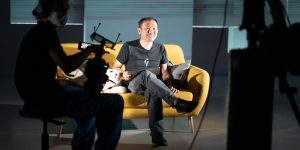
Artistic Journalism 2021
Online Course on Social Dialogue
In 2021, Ars Electronica Futurelab’s Artistic Director Hideaki Ogawa taught an online course at Keio University SFC (Shonan Fujisawa Campus) on “Artistic Journalism”: the act of creating a social dialogue through artistic expression, research, exploration, and action.

